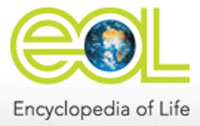 Formally announced during the week with funding of $12.5 million, Encyclopedia of Life aims to be an online reference source and database for every one of the 1.8 million species that are named and known on earth.
Formally announced during the week with funding of $12.5 million, Encyclopedia of Life aims to be an online reference source and database for every one of the 1.8 million species that are named and known on earth.
Encyclopedia of Life is a collaborative effort. Tens of thousands of citizen scientists with expertise around the world are responsible for the creation of content.
The Encyclopedia will be developed by bringing mashups of content from a wide variety of sources. This material will then be authenticated by scientists so that information listed is vetted and known to be authoritative. Data is then supplemented when and where new data is discovered in the field – from scientists across the globe – to ensure it stays current. Software tools will mine scientific literature in order to provide regular updates from external sources.
Encyclopedia of Life is being developed to serve as a comprehensive resource for everyone; scientist, teacher, student, media, any interested party. The Encyclopedia’s goal is to become a valuable learning and teaching resource for anyone who has an interest in life on Earth.
But is it better than Wikipedia?
Thomas Goetz writes at Epidemix that Wikipedia “sucks when it comes to Science topics”, not for being inaccurate, but unapproachable. “On science, there’s a oneupmanship going on, and a topic will be honed to an ever-greater level of expertise. That’s great for precision and depth, but horrible for the general user”.
Without seeing more than screen shots of ,the final product at Encyclopedia of Life it’s difficult to judge decisively whether the new comer will be superior to Wikipedia on Science, and yet it sounds far more approachable in terms of readability. Visually Encyclopedia of Life wins by a country mile.
Will Encyclopedia of Life be better than Wikipedia? Share your thoughts in the comments.